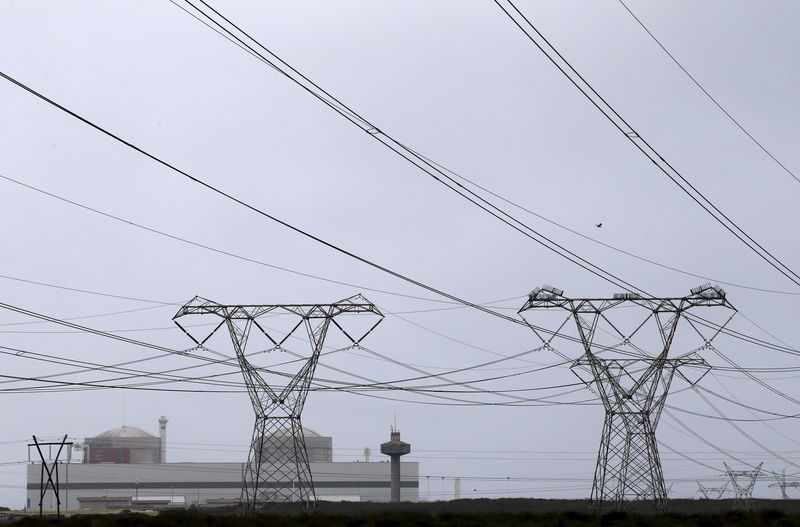By Wendell Roelf
CAPE TOWN (Reuters) - South Africa's energy minister pledged transparency in the country's efforts to seek a nuclear agreement on Tuesday, seeking to reassure opposition parties who have accused the government of favouring a deal with Russia.
South Africa, struggling with an electricity crunch that has caused frequent power cuts and threatens economic growth, said in May it will procure a nuclear fleet to generate 9,600 megawatts of power by 2030.
Analysts estimate the project will cost as much as $100 billion, making it the country's biggest ever infrastructure project.
But there has been mounting concern among opposition parties about the cost and that agreements to build the nuclear plants will be made behind closed doors, without the necessary public scrutiny.
"We would want these agreements to be scrutinised and exposed to public scrutiny," energy minister Tina Joemat-Pettersson told parliament, reiterating that no deal had been signed with anybody as a preferred bidder.
China, France, Russia, the United States and South Korea, as well as Japan and Canada, have all expressed interest and have signed or are close to signing cooperation deals with South Africa on possible trade and exchange of nuclear technology.
Opposition lawmakers have said the wording of these inter-governmental agreements (IGAs) were significantly different, and seemed to favour Russia. An energy advisor to the government also said in June that South Africa was considering using reactors from Russia's Rosatom and Westinghouse of the United States for its nuclear fleet expansion.
Joemat-Pettersson said this was not so.
"The agreements are public documents ... We haven't handed over dossiers to the Russians. There is really this perspective that I am married to the Russians, I am married to Rosatom. Please, we are making it (IGAs) public," she told parliament during a briefing on nuclear power policy.
The government would only agree a nuclear deal that was affordable and in line with procurement policies, she said.
"Allow us to be transparent but allow us to do our work. There is nothing we are hiding," she said.
The first plant is seen coming online by 2023, according to the department of energy.
South Africa runs the continent's only commercial nuclear power plant at Koeberg, near Cape Town, which was built with French technology.
Joemat-Pettersson said the government, which has started several new wind and solar power projects as part of efforts to diversify the country's energy sources, was committed to nuclear energy to help reduce its harmful carbon emissions.

"We are committed to a thorough cost-benefit analysis and the cost-benefit analysis is part of the procurement process. We are not going to compromise our country in any way," she said.